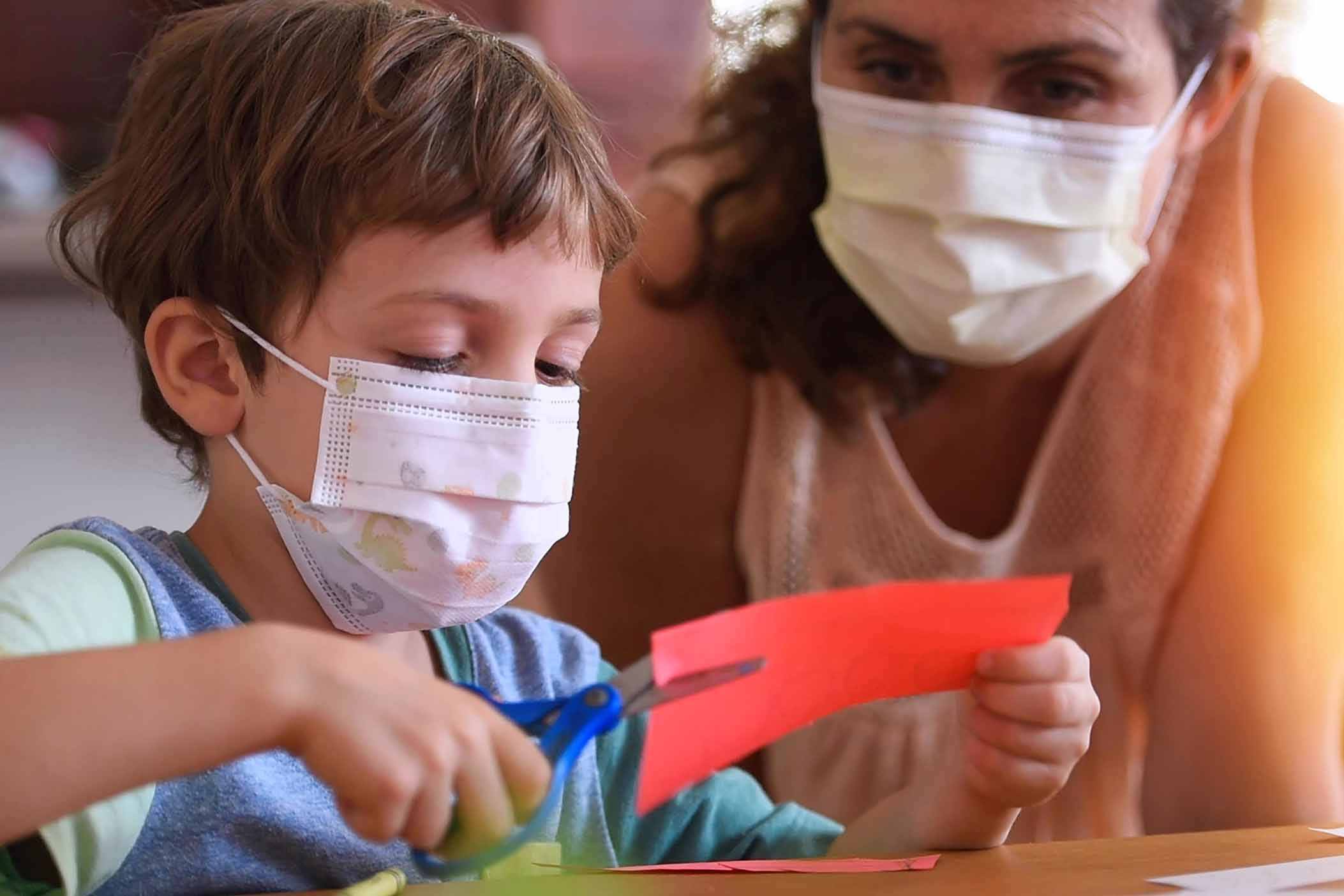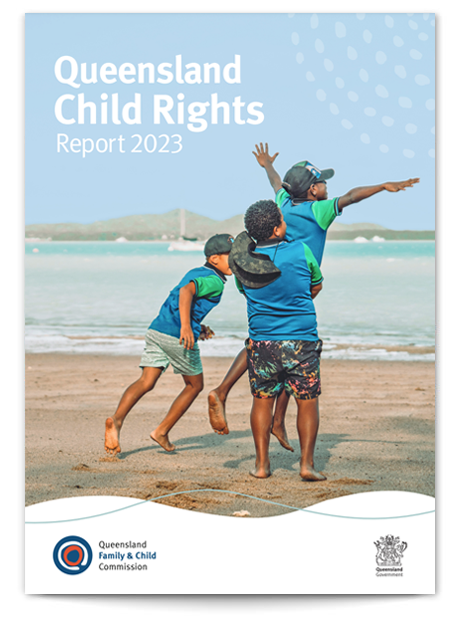All children and young people have human rights. Rights are a list of promises made to children and young people to keep them healthy, happy, safe and connected to culture so that they can live their best possible lives.
Children and young people have special rights, including being treated equally without discrimination, having their best interests prioritised, and experiencing life, survival, and development in all aspects of their wellbeing. They also have the right to participate in decisions that affect them and have their opinions taken seriously. Caregivers, parents and community members should guide them in exercising their rights in line with their evolving capacities as they grow and develop.

What rights do children have?
Children and young people have rights regardless of their age, where they are from, what they believe or how they choose to live their lives.
Children’s rights are set out in the United Nations Convention on the Rights of the Child (UNCRC) and include the right to:
- An identity, to be given news and information and to express themselves freely.
- Be protected from violence.
- Family support and if they can’t be looked after by their family, they have a right to be looked after by people who respect their religion, culture and language.
- A full and decent life and to a standard of living that meets their physical and mental needs.
- An education, rest and play.
The United Nations Declaration on the Rights of Indigenous Peoples (UNDRIP) is an international human rights instrument that outlines the rights of Indigenous peoples worldwide. The UNDRIP and UNCRC share common principles and objectives and they work together to promote the rights and wellbeing of Aboriginal and Torres Strait Islander children and young people.

Everyone has a role to play in upholding the rights of a child, but it is ultimately the responsibility of governments to take active measures that protect and promote children's rights.
The Commission advocates for the rights of children and young people in Queensland by raising awareness, amplifying the voices and experiences of young Queenslanders, and influencing decision makers on issues that impact children and young people.
The inaugural Queensland Child Rights 2023 report explores child rights issues the Commission has observed in its statutory role, including a special chapter that focuses on Queensland’s youth justice system and assesses Queensland’s compliance with its obligations under the United Nations Convention on the Rights of the Child (UNCRC).
Summary of United Nations Convention on the Rights of the Child
This simplified version is adapted from Unicef’s child-friendly version.
1. Definition of a child
A child is any person under the age of 18.
2. No discrimination
All children have all these rights, no matter who they are, where they live, what language they speak, what their religion is, what they think, what they look like, what their gender is, what their sexual orientation is, if they have a disability, if they are rich or poor, and no matter who their parents or families are or what their parents or families believe or do. No child should be treated unfairly for any reason.
3. Best interests of the child
When adults make decisions, they should think about how their decisions will affect children. All adults should do what is best for children. Governments should make sure children are protected and looked after by their parents, or by other people when this is needed. Governments should make sure that people and places responsible for looking after children are doing a good job.
4. Making rights real
Governments must do all they can to make sure that every child can enjoy all of their rights.
5. Family guidance as children develop
Governments should let families and communities guide their children so that, as they grow up, they learn to use their rights in the best way. The more children grow, the less guidance they will need.
6. Life, survival and development
Every child has the right to live a full life. Governments must make sure that children survive and develop in the best possible way.
7. Name and nationality
Children have the right to a legally registered name and nationality. Children also have the right to know their parents and, as far as possible, to be cared for by them.
8. Identity
Children have the right to their own identity – an official record of who they are which includes their name, nationality and family relations. No one should take this away from them, but if this happens, governments must help children to quickly get their identity back.
9. Keeping families together
Children should not be separated from their parents unless they are not being properly looked after – for example, if a parent hurts or does not take care of a child. Children whose parents don’t live together should stay in contact with both parents unless this might harm the child.
10. Contact with parents across countries
If a child lives in a different country than their parents, governments must let the child and parents travel so that they can stay in contact and be together.
11. Protection from kidnapping
Governments must stop children being taken out of the country when this is against the law – for example, being kidnapped by someone or held abroad by a parent when the other parent does not agree.
12. Respect for children’s views
Children have the right to say what they think should happen when adults are making decisions that affect them. Adults should listen and take children seriously.
13. Sharing thoughts freely
Children have the right to get information and freely share what they learn, think and feel, by talking, drawing, writing or in any other way, as long as it is not damaging to them or to others.
14. Freedom of thought and religion
Children can choose their own thoughts, opinions and religion, as long as they are not stopping other people from enjoying their rights. Parents can guide children so that as they grow up, they learn to properly use this right.
15. Setting up or joining groups
Children can join or set up groups or organisations, and they can meet with others, as long as this does not harm other people.
16. Protection of privacy
Every child has the right to privacy. The law must protect children’s privacy, family, home, communications and reputation from attack.
17. Access to information
Children have the right to get reliable information from the internet, radio, television, newspapers, books and other sources. Adults should make sure the information they are getting is not harmful. Governments should encourage the media to share information from lots of different sources, in languages that all children can understand.
18. Responsibility of parents
Parents are the main people responsible for bringing up a child. When the child does not have any parents, another adult will have this responsibility and they are called a “guardian”. Parents and guardians should always consider what is best for that child. Governments should help them. Where a child has both parents, both of them should be responsible for bringing up the child.
19. Protection from violence
Governments must ensure that children are properly cared for, and protect them from violence, abuse and neglect by anyone who looks after them.
20. Children without families
Children who cannot be looked after by their own family have the right to be properly looked after by people who respect their religion, culture, language and other aspects of their life.
21. Children who are adopted
When children are adopted, the most important thing is to do what is best for them. If a child cannot be properly looked after in their own country – for example by living with another family – then they might be adopted in another country.
22. Refugee children
Children who move from their home country to another country as refugees should get help and protection and have the same rights as children born in that country.
23. Children with disabilities
Children who have any kind of disability should receive special care and support so that they can live a full and independent life.
24. Health, water, food, environment
Children have the right to good quality healthcare, clean water, nutritious food and a clean and safe environment to live in. All adults and children should have information about how to stay safe and healthy.
25. Review of a child’s placement
Every child who has been placed somewhere away from home – for their care, protection or health – should have their situation reviewed regularly to see if everything is going well and if it is still the best place for the child to be.
26. Social and economic help
Governments should provide money or other support to help children from poor families.
27. Food, clothing, a safe home
Children have the right to food, clothing and a safe place to live so they can develop in the best possible way. The government should help families and children who cannot afford this.
28. Access to education
Every child has the right to an education. Primary education should be free. Secondary and higher education should be available to every child. Children should be encouraged to go to school to the highest level possible. Discipline in schools should respect children’s human dignity and never use violence.
29. Aims of education
Children’s education should help them fully develop their personalities, talents and abilities. It should teach them to understand their own rights, and to respect other people’s rights, cultures and differences. It should help them to live peacefully and protect the environment.
30. Minority culture, language and religion
Children have the right to learn and use their own language, culture and religion – even if these are not shared by most people in the country where they live.
31. Rest, play, culture, arts
Every child has the right to rest, relax, play and to take part in recreational, cultural and creative activities.
32. Protection from harmful work
Children have the right to be protected from doing work that is dangerous or bad for their education, health or development. If children work, they have the right to be safe and paid fairly.
33. Protection from harmful drugs
Governments must protect children from taking, making, carrying or selling harmful drugs.
34. Protection from sexual abuse
The government should protect children from sexual exploitation (being taken advantage of) and sexual abuse, including by people forcing children to have sex for money, or making sexual pictures or films of them.
35. Prevention of sale and trafficking
Governments must make sure that children are not kidnapped or sold, or taken to other countries or places to be exploited (taken advantage of).
36. Protection from exploitation
Children have the right to be protected from all other kinds of exploitation (being taken advantage of), even if these are not specifically mentioned in this Convention.
37. Children in detention
Children who are accused of breaking the law should not be treated cruelly, put in prison forever, or put in prison with adults. Prison should always be the last choice and only for the shortest possible time. Children in prison should have legal help and be able to stay in contact with their family.
38. Protection in war
Children have the right to be protected during war. No child under 15 can join the army or take part in war.
39. Recovery and reintegration
Children have the right to get help if they have been hurt, neglected, treated badly or affected by war, so they can get back their health and dignity.
40. Children who break the law
Children accused of breaking the law have the right to legal help and fair treatment. There should be lots of solutions to help these children become good members of their communities. Prison should only be the last choice.
41. Best law for children applies
If the laws of a country protect children’s rights better than the United Nations Convention on the Rights of the Child, then those laws should be used.
42. Everyone must know children’s rights
Governments should actively tell children and adults about the United Nations Convention on the Rights of the Child so that everyone knows about children’s rights.
43-54. How the convention works
These articles explain how adults, governments, the United Nations and other organisations should work together to make sure that all children get all their rights.
Last updated
20 November 2023

